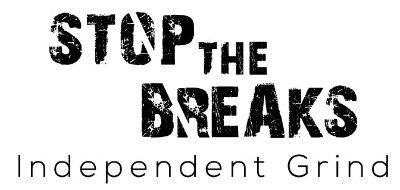
This article was written by Patrice K. Cokley
A couple of weeks ago, I shared “5 Things Independent Artists Need to Consider When Hiring a Manager” for those artist who are starting out and feel that having representation would take their career to the next level.
It was only right that I cover the other end of the spectrum and what managers should consider when signing talent.
As with any relationship, there should always be a two-way street, especially between a manager and an artist. To avoid wasting your time and resources on the wrong artists, consider these 5 characteristics when making your decision.
Make sure that this person is committed to doing whatever it takes to grow and enhance their career
An artist needs to understand that this is their career that you are working with. This is their dream and it is very important that they are willing to do whatever it takes to make it happen. As a manager, you have a slight advantage because the industry is saturated with artists who have strong desires for management.
There are simply not enough managers for the number of artists out here seeking representation. When you look for one, definitely make sure that the person is committed to do whatever it takes to stand out among the noise.
A great artist will show up on time for meetings, communicate when things are going bad or good, or when someone approaches them regarding potential business opportunities. They are willing to work with you as a partner, essentially, to build their career.
If they had to go on a very grueling tour to build their fan base, they are willing and committed to do that. No matter what it takes, this artist is committed to grow their career WITH you.
That is certainly something that you want to look for because there are a lot of artist out here who are not THAT committed and expect the Manager to do all the work for them.
You want to make sure that this artist has a very entrepreneurial mindset
The record labels do not run the industry anymore, the artists do. An artist’s brand is essentially a small business. They’re the CEO and literally have to build a business infrastructure to generate revenue.
An artist must see themselves as an entrepreneur; a business owner. There’s a major shift happening right now in the music industry. As a result, it’s imperative that an artist view themselves as more than just an artist.
An entrepreneurial mindset can be taught; but it’s up to that artist to be receptive to it. There are a plethora of books, webinars, conferences, and online articles that an artist can read and learn from to become more entrepreneurial. It is is very important that they understand this before you bring them on.
Otherwise, you two will be growing the business in two different ways. For example, if they have an entrepreneurial mindset, this artist will be more open and willing to hire people on the team to help grow the business. Such people could include a publicist, booking agent, stylist, designer, and more key professional.
The perfect analogy is viewing the artist as a department store (ex. Walmart, Macy’s). They have different departments (areas of business) that are being managed by these professionals. The manager is the “Store Manager”, the one managing and overseeing the entire operation (team).
If the artist doesn’t have much going on to require a manager overseeing their operation, then it may not be the right time to bring on a manager. Maybe an assistant or intern would be best to help them reach that level within their career.
On the flip side of this scenario, if an artist doesn’t have the entrepreneurial mindset, they show more of an employee mindset. They would be eager to sign with a record label or someone who would control their career where they face the risk of being shelved or pushed back so that they can focus on some of their bigger acts.
And as you can see, due to the current state of the industry, an entrepreneurial mindset is imperative, whether you sign with a label or remain independent because an entrepreneurial artist wouldn’t wait for a label. They would have built up enough leverage to command that the label put forth effort on their behalf.
This artist should be able take direction extremely well
An artist is in business for their audience. Without an audience or fan base, you don’t have a business; you have a hobby. There will be times where an artist will receive feedback from their fan base, manager, label, investor, and many others, and it’s important that the artist is open to accepting that feedback or direction.
For example, fans made Ella Mai’s “Boo’d Up” a hit. She chose not to include it in her set list at shows early on, but the fans spoke and demanded that she perform it. She did and the record exploded. So it’s very important that one can take direction well to grow and evolve as an artist and as an entrepreneur.
This artist should be able to communicate
The key to the Artist-Manager relationship is communication. Whenever there are changes going on with them personally or in the business, the artist should be able to openly communicate with the manager.
There will be times where you, as their manager, will be handling things on their behalf when they’re not able to. If you are not in sync working together, the both of you are contributing to the detriment of the business and slowing down any progress tremendously. So it is very important that an artist is able to communicate with you and you’re able to communicate with them.
This means responding to emails, calls and text messages in a timely fashion, sharing updates or ideas on a regular basis, and just simply “checking in” regularly. No artist or manager should go more than a week without communicating, unless there was a family emergency or if someone was on vacation and stated that they were going off the grid for a bit.
The artist should have a good attitude
No one wants to work with someone who has a negative or presumptuous attitude. This person must have a good attitude, be kind, polite, and show that they want to build a business doing what they love. Being a manager is a very selfless job.
There will be times where you work your butt off and not receive any public recognition (or pay). It sucks, but it’s the nature of the business. What makes it worthwhile is the growth of the business/brand and the artist showing their appreciation for your help, in general.
Building a career in the music industry is not easy for anyone. The industry is oversaturated with people wanting to be artists and managers. So it’s extremely important to work with artists you enjoy working with because people love to work with others who are cool to be around; even when the stage lights are off and everybody went home.
There will be times where the team may bump heads, and that’s okay. It’s human and a part of developing personally and strengthening the relationship. But it is how both parties address the issue and resolve it that matters. As the saying goes: it’s not what you do, but how you do it.
Managers, again, whenever you consider working with an artist, make sure that they have these 5 traits. Some may say that I should have listed “having talent” as one. But we’re currently surrounded by talent. Everybody has talent, but not a lot of artists have these 5 chracteristics. With that being said, happy hunting and good luck on your artist partnership.
Patrice K. Cokley is a Talent Manager, Brand Strategist, Marketing Consultant, and Founder/Owner of The Bassline Group; an artist development and consulting company where she helps artists and music-related brands level up in their business. You can check out the services she offers on her Uptown Plug profile here.



